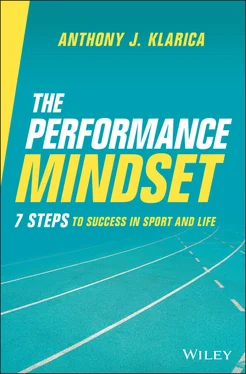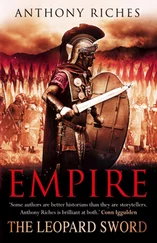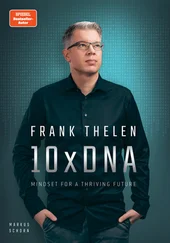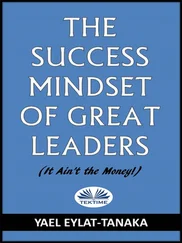Anthony J. Klarica - The Performance Mindset
Здесь есть возможность читать онлайн «Anthony J. Klarica - The Performance Mindset» — ознакомительный отрывок электронной книги совершенно бесплатно, а после прочтения отрывка купить полную версию. В некоторых случаях можно слушать аудио, скачать через торрент в формате fb2 и присутствует краткое содержание. Жанр: unrecognised, на английском языке. Описание произведения, (предисловие) а так же отзывы посетителей доступны на портале библиотеки ЛибКат.
- Название:The Performance Mindset
- Автор:
- Жанр:
- Год:неизвестен
- ISBN:нет данных
- Рейтинг книги:3 / 5. Голосов: 1
-
Избранное:Добавить в избранное
- Отзывы:
-
Ваша оценка:
- 60
- 1
- 2
- 3
- 4
- 5
The Performance Mindset: краткое содержание, описание и аннотация
Предлагаем к чтению аннотацию, описание, краткое содержание или предисловие (зависит от того, что написал сам автор книги «The Performance Mindset»). Если вы не нашли необходимую информацию о книге — напишите в комментариях, мы постараемся отыскать её.
The Performance Mindset: 7 steps to success in sport and life
The Performance Mindset: 7 steps to success in sport and life
The Performance Mindset — читать онлайн ознакомительный отрывок
Ниже представлен текст книги, разбитый по страницам. Система сохранения места последней прочитанной страницы, позволяет с удобством читать онлайн бесплатно книгу «The Performance Mindset», без необходимости каждый раз заново искать на чём Вы остановились. Поставьте закладку, и сможете в любой момент перейти на страницу, на которой закончили чтение.
Интервал:
Закладка:
Ashleigh Barty, the world number one female tennis player in 2021, is an example of how challenges need to be overcome to keep going in sport. After winning Junior Wimbledon in 2011 and making the finals of open Grand Slam doubles events in 2013, Barty took a break from her sport in 2015. It was a bold move that many athletes would struggle to make. She stopped playing tennis and played cricket. However, after time away and likely with a fresh mindset, she returned to tennis in 2016 aged 20. Even then it wasn't smooth sailing. She lost in the qualifying rounds of Wimbledon in 2016 and in 2017 lost in the first round.
To facilitate Ash's return to tennis from cricket, she moved to a new base in Melbourne and began an individualised program. In her transition, she was supported and coached by the highly regarded Jason Stoltenberg, himself a former Wimbledon men's singles semifinalist. Ash then began working with her current coach, Craig Tyzzer, who was also very experienced. Her new schedule was flexible and her support network were patient and encouraging. The relationship between Craig and Ash went from strength to strength. These factors contributed to her being able to capitalise on her original foundation of work. After three years back on tour she climbed to the top of the sporting mountain and won the French Open in 2019, Wimbledon in 2021 and her home Australian Open in 2022. We'll never know what might have happened had she not taken the break and the path back that she did.
Attitude nurtures talent
Ash's doubles partner at the 2021 Tokyo Olympic Games, Storm Sanders, experienced a very different path to realising her goal of representing Australia. Storm was not a junior slam winner. Of the four junior slams she did play, including two in Australia, she had a best result of third round. Due to a limited number of junior tournaments her best junior ranking was 55. Storm grew up about an hour from Perth playing a variety of sports, including soccer, gymnastics and surfing, as well as different sports at school. ‘I never got selected for a state team, as I was only about the fourth or fifth best in Western Australia. I didn't win things or get sponsorship as a junior,’ she reflected when I interviewed her.
‘I honestly don't believe I have that much raw talent,’ Storm said. ‘My talent is to stick to everything I do and commit, day in day out. It ended up helping me because I realised I had to go about it my own way. For three years I set my alarm and regularly got up at 5 am, caught the train an hour into Perth to practise in the morning, then back home to get to school, and repeat in the afternoon. If my parents drove me, it still took 45 minutes each way. I recognise now I was behind in my tennis development, especially because I didn't play as many tournaments as others due to my circumstances. As a result of this I developed more mental skills than my peers at that time. I think it enabled me to have a career and a lot of the other people ahead of me then have now stopped.’
Storm's attitude ultimately assisted her career progression. ‘I remember going for a hit with a junior male player during the Hopman Cup in Perth when I was 15. It was super‐hot, but we kept working through the session. Because of the timing, a few courts down former player and now coach Nicole Pratt was working with Australian player Alicia Molik. She must have noticed us because she came over to speak to me when they finished. She was impressed with how I went about it. There was no coach there. I was running my own session, being independent. She said she was so impressed with my attitude that she would like to help me. I got invited to go to Melbourne for a week to hit and the following year I was invited to an academy there and moved to Melbourne. I had just finished year 11 in Perth, but once in Melbourne I made sure I finished year 12.’
The transition wasn't smooth. After several challenges, including injuries that forced her out of the game for almost a year, and with no ranking in 2018, Storm is now ranked about 120 in the world in singles and 30 in doubles. She has built her game back on the foundation of doubles and in 2021 made the Wimbledon doubles semifinal and US Open doubles quarter‐finals, and represented Australia at the Olympics and the Federation Cup (now the Billie Jean King Cup). She began competing in singles again in 2020, effectively starting her singles career in her mid‐twenties. It's a career that wasn't built on talent, but on mindset. Ash Barty's and Storm Sanders’ stories also reflect the variety of pathways that a sporting career can take. They can be unpredictable, with twists and turns and different talent bases. Using supports, patience and a determined resolve were key mindsets for both athletes that enabled them to advance.
You grow in the direction of your focus
Take another example, this time from a team sport. Sam Mitchell is a retired Australian rules football player who was appointed coach for 2022 of the team he'd had most success with — the Hawthorn Football Club. Hawthorn played in four consecutive Australian Football League (AFL) Grand Finals, winning three in a row from 2013 to 2015. This feat deserves special recognition due to the equalisation policies of player and staff salary caps and drafting policy that the AFL introduced in the late eighties. Since equalisation, 14 teams have won premierships while only two have won three consecutively, which makes the Hawks' achievement even more impressive.
In this winning team, Sam won the AFL Brownlow Medal in 2012. The Brownlow is arguably the game's most prestigious individual honour. It is awarded to the ‘best and fairest’ player in the entire competition in any given season. By the time he retired in 2017, Sam was the third highest total vote scorer in the history of the medal. He had won four premierships, played the third most games in Hawthorn's history and won five club champion awards. In addition, Sam captained the club from 2008 to 2010, with ’08 yielding a premiership.
What's interesting is that Sam was overlooked altogether in the 2000 draft, then was selected in 2001 with draft pick 36. So, in the year of his draft, he was overlooked by every club in the AFL before he was selected in the third round with Hawthorn's fifth pick.
One strength Sam had was his capacity to kick with either left or right foot. He wasn't especially tall or quick. His endurance wasn't necessarily the greatest either. But he had a reputation for his skill and decision making. His proficiency on both sides of his body was so evident that commentators often remarked on the difficulty of distinguishing which his ‘natural’ side was. When I interviewed him late in 2021, Sam said, ‘We had no sporting background in our family at all. Dad actually bought some books about football to learn the game. When I was quite young, Dad had a person working with him, Bill, who had some experience and skill in football, and he said it would be good to alternate one left‐foot kick and one right‐foot kick when I went for a kick.’ Sam took it as gospel. He adopted the principle, and it stuck. ‘I still find it natural to alternate left–right and it actually felt weird right through my career if I had a few kicks on one side of my body before using the other side. It was a learned skill.’ Bill's unsolicited advice many years before Sam was drafted helped make him the champion footballer he became. It was a spark that developed one of his key football skills. And his commitment to practice developed this weapon for him.
Regarding talent, Sam said, ‘Some genetic factors help, but I think the ratio of importance of talent to development is about 10:90. Skill development hasn't got a lot to do with talent. I believe that if you have long‐term commitment, focus and desire, year after year, your development will be strong. Sometimes starting with a lot of talent doesn't help because you become reliant on current skills and don't have to work as hard. You grow in the direction of your focus.’
Читать дальшеИнтервал:
Закладка:
Похожие книги на «The Performance Mindset»
Представляем Вашему вниманию похожие книги на «The Performance Mindset» списком для выбора. Мы отобрали схожую по названию и смыслу литературу в надежде предоставить читателям больше вариантов отыскать новые, интересные, ещё непрочитанные произведения.
Обсуждение, отзывы о книге «The Performance Mindset» и просто собственные мнения читателей. Оставьте ваши комментарии, напишите, что Вы думаете о произведении, его смысле или главных героях. Укажите что конкретно понравилось, а что нет, и почему Вы так считаете.










